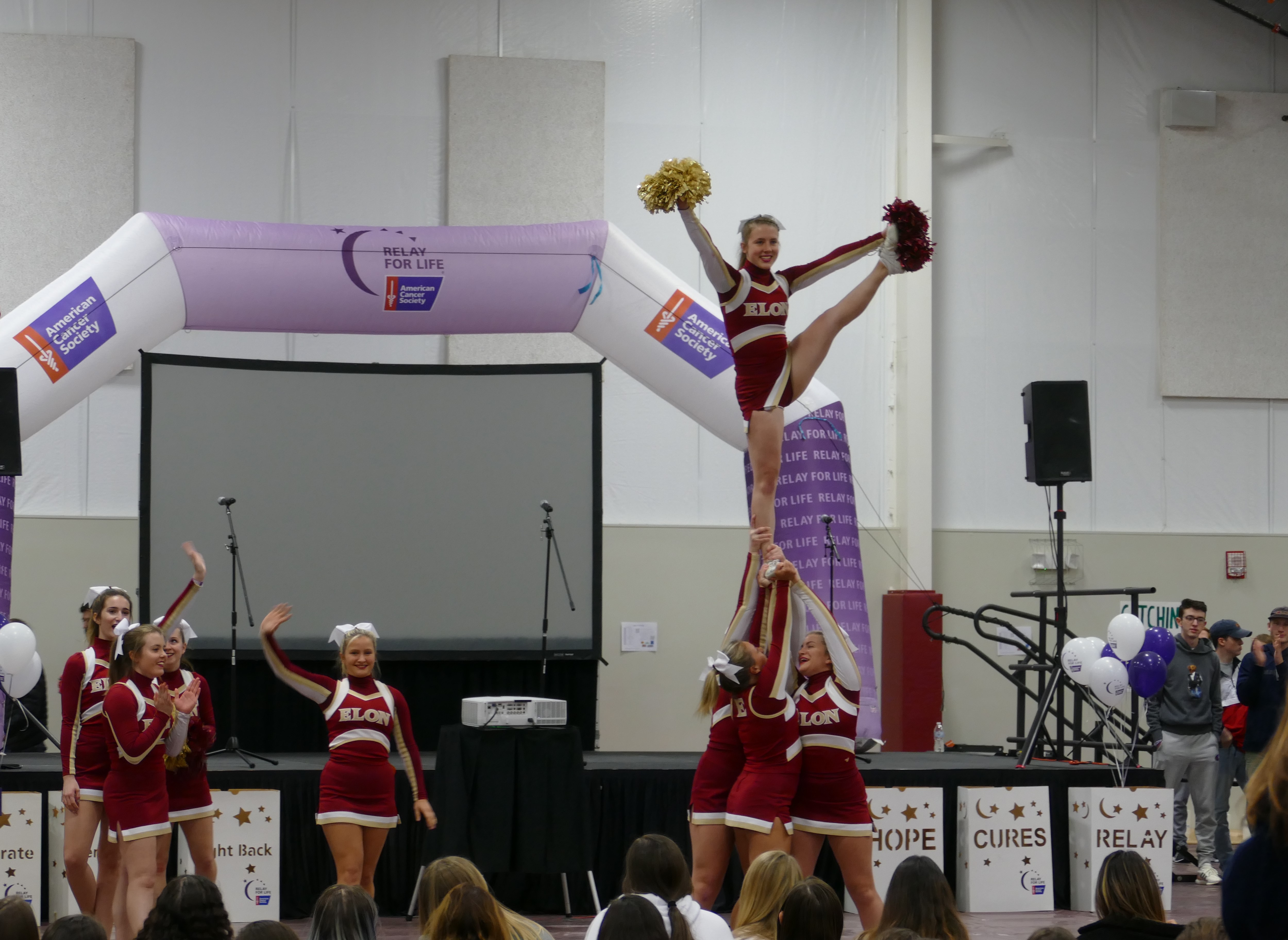The annual effort by Elon students, faculty and staff generates support for cancer research and those battling the disease. This year’s effort raised nearly $80,000.
On Friday, Feb. 28, on-campus organizations and students gathered to participate in Relay for Life, a 12-hour fundraiser to support those affected by cancer by raising money for the American Cancer Society.
The event ran from 6 pm to 6 am and the night included different performances, speakers and fundraisers. Overall, the effort raised $76,775.12.
“100 percent of the proceeds that we raise go to the American Cancer Society and there the money will be used to help fund a lot of research in cancer cures and medicines,” said Jamie Inlander ‘20, the president for Relay for Life at Elon.
Organizations signed up as “teams” and hosted different fundraisers throughout the night such as selling baked goods and face painting. Participants bought tickets to use at different fundraisers. Teams also pay a registration fee which also goes to the American Cancer Society.
 The night began with an opening ceremony that saw Deputy Registrar Susan Patton and Catherine Nester ‘22 share their personal experiences with cancer treatment. Patton, a two-time breast cancer survivor, said she has become close with other survivors during her own battle against the disease. She was diagnosed with breast cancer in 2006 and again in 2018. She is now finished with treatment.
The night began with an opening ceremony that saw Deputy Registrar Susan Patton and Catherine Nester ‘22 share their personal experiences with cancer treatment. Patton, a two-time breast cancer survivor, said she has become close with other survivors during her own battle against the disease. She was diagnosed with breast cancer in 2006 and again in 2018. She is now finished with treatment.
“These experiences could’ve been the worst times of my life, but they weren’t,” Patton said. “I met so many wonderful, wonderful people.”
Nester was diagnosed with lymphoma in 2015 and spoke about her struggles dealing with cancer as a high school student. She grew resistant to different chemotherapies and doctors changed her treatment plan several times.
“I read textbooks from my hospital bed to keep my grades up and prepare for a future that I wasn’t sure that I had,” Nester said. “I had to fight what my peers took for granted. My priorities became clearer than ever before since I had to choose what to spend my limited energy on.”
With chemotherapy not working, Nester took part in a clinical trial for immunotherapy, an individualized treatment that works by strengthening good cells instead of attacking bad ones. Doctors planned for Nester to receive a bone marrow transplant when the immunotherapy was no longer effective, but the treatment kept working. Her doctors postponed her bone marrow transplant, which meant Nester had to delay her start at Elon for a year.
“I was devastated to have to surrender my dreams of a normal life once again,” she said. “As my friends moved away to school that fall, I moved into the hospital.”
After her transplant, Nester finally got the news she was in remission.
“I still have to do a year of maintenance treatment but finally being in remission was the news I’d been waiting for so long and at some points, wasn’t sure I would ever get it,” she said. “I hadn’t realized I had been holding my breath for two and a half years until I could finally breathe deep knowing that I was cancer-free.”
Speakers like Patton and Nester help others better understand what it’s like to go through cancer, Inlander said.
“The survivor-speakers are a really great way for people to hear if they have not been affected by cancer, how it has affected some people and kind of gives a real image of where their money can go to help people,” Inlander said.
The event also included a survivor/caregiver walk, when cancer survivors and those who took care of them are honored through a lap around the gym.
During the luminaria ceremony, participants honored those affected by cancer. Each light represents someone who has passed away from cancer, a survivor, or someone who currently has cancer.
The night also included activities such as Zumba, and an hour of yoga before the closing ceremony.



